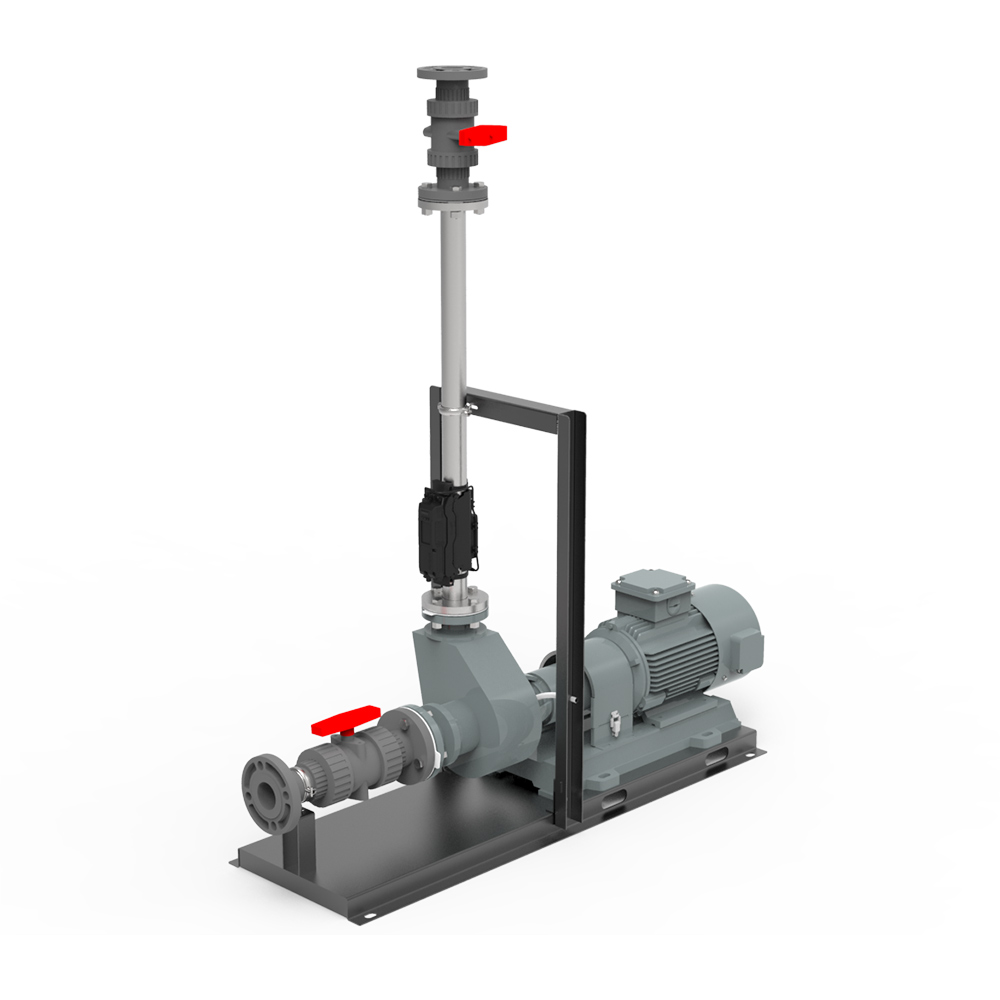Guide to Chemical Pumps: Types, Functions, and Selection Criteria
Chemical pumps are essential in industries where the safe and efficient handling of aggressive or hazardous liquids is critical. From water treatment and pharmaceuticals to oil refining and chemical manufacturing, these pumps ensure accurate fluid transfer while minimizing exposure risks, system failures, or contamination. This article provides a comprehensive guide to understanding chemical pumps—how they work, their types, common applications, selection criteria, and maintenance considerations.
What is a Chemical Pump?
A chemical pump is a specially designed pump engineered to transfer and dose chemicals—often corrosive, abrasive, or hazardous in nature—safely and efficiently. Unlike standard pumps, chemical pumps are built using materials that resist degradation caused by acids, alkalis, solvents, and high-temperature liquids.
These pumps must maintain high reliability, chemical compatibility, leak prevention, and sometimes precise metering. Modern chemical pumps often incorporate advanced features such as real-time monitoring, automatic shutdown systems, and smart diagnostics.
How Do Chemical Pumps Work?
The working principle of a chemical pump depends on its type (positive displacement or centrifugal), but the goal is consistent: to move chemicals from one point to another safely and reliably. The pump is typically powered by an electric motor, pneumatic system, or engine drive. In metering applications, chemical pumps can be calibrated to dispense highly precise amounts of liquid at defined intervals or rates.
Digital dosing pumps, for example, utilize servo motors, microcontrollers, and pressure sensors to automate and control chemical flow with high accuracy (often within ±0.5%). These systems offer real-time adjustments based on process feedback, improving precision and reducing waste.
Types of Chemical Pumps
There are various types of chemical pumps, each suited to different needs depending on fluid properties, pressure requirements, and operating conditions.
Common Types of Chemical Pumps and Their Characteristics
| Pump Type | Principle | Best For | Key Features |
| Centrifugal Pumps | Kinetic energy transfer | Low-viscosity fluids | Simple design, continuous flow |
| Diaphragm Metering Pumps | Positive displacement | Precise chemical dosing | Leak-free, highly accurate |
| Peristaltic Pumps | Mechanical compression | Shear-sensitive or viscous fluids | Easy to clean, low contamination risk |
| Gear Pumps | Positive displacement | High-viscosity or oil-like fluids | Smooth, pulseless flow |
| Magnetic Drive Pumps | Magnetic coupling | Hazardous or corrosive liquids | Seal-less, no leakage risk |
| Screw Pumps | Positive displacement | High-volume chemical transfer | Quiet, handles thick fluids |
Applications of Chemical Pumps
Chemical pumps are indispensable across various sectors due to their versatility and safety features. Below are some of the key application areas:
Water and Wastewater Treatment
Chemical pumps are used to dose disinfectants, coagulants, pH control agents, and anti-scalants into water systems. Precision and reliability are critical to maintaining water safety standards.
Chemical Manufacturing
Chemical plants rely on these pumps for transferring raw chemicals, acids, solvents, and additives in production processes. Compatibility with aggressive fluids and pressure tolerance is essential.
Oil and Gas Industry
In petroleum refining and exploration, chemical pumps inject demulsifiers, corrosion inhibitors, and scale removers into pipelines and machinery to maintain system integrity.
Food and Beverage
Certain food-safe chemical pumps are used to dose cleaning agents during CIP (clean-in-place) procedures. However, only FDA-approved materials are allowed in direct contact with consumables.
Pharmaceutical Industry
Used to handle active pharmaceutical ingredients (APIs) and sterilizing fluids, chemical pumps must meet stringent sanitary and contamination prevention standards.

Choosing the Right Chemical Pump
Selecting the right chemical pump involves a detailed analysis of your process requirements. Below are key factors to consider:
Chemical Compatibility
The pump’s wetted parts must be compatible with the chemical media. Common materials include PTFE, PVDF, stainless steel, and Hastelloy. Using incompatible materials can lead to rapid wear or catastrophic failure.
Flow Rate and Pressure
Determine the volume of chemical to be pumped and the pressure required. Overestimating may lead to inefficiency, while underestimating can damage the system.
Viscosity and Temperature
Pumps must be capable of handling the fluid's viscosity and temperature without losing performance. For example, screw or gear pumps are ideal for thick or hot fluids.
Required Accuracy
For applications such as dosing or injection, metering accuracy is vital. Digital dosing pumps often offer precision within ±0.2–0.5%, ideal for high-value chemicals or sensitive processes.
Operating Environment
Factors such as explosion-proofing, indoor/outdoor use, or exposure to dust and moisture should influence your choice. Sealed and corrosion-resistant designs are often preferred in harsh conditions.
Advantages of Digital Dosing Chemical Pumps
Modern digital metering pumps combine precision, intelligence, and automation in one compact unit. Below are some advantages:
Benefits of Digital Dosing Pumps
| Feature | Benefit |
| Servo Motor Drive | Stable dosing rate, even under fluctuating pressure |
| Real-time Pressure Sensors | Detect anomalies like leaks, blockages, or air bubbles |
| Programmable Interface | User-friendly display and control over dosing modes |
| Self-Diagnostics | Automated alerts for maintenance or malfunctions |
| Auto-Exhaust Feature | Automatically eliminates trapped air from the pipeline |
| Remote Integration | Compatibility with SCADA/PLC systems for centralized control |
These features result in reduced chemical waste, improved safety, and lower long-term costs.
Maintenance and Safety Considerations
Routine Maintenance
To maintain optimal performance, schedule regular inspections. Common practices include:
- Checking seals and diaphragms for wear
- Cleaning or flushing the pump after handling corrosive liquids
- Recalibrating flow meters and sensors
- Verifying firmware and software settings (for digital systems)
Maintenance frequency depends on the pump type, fluid properties, and operating environment. Diaphragm pumps may require maintenance every 6–12 months, while centrifugal pumps need less frequent attention.
Safety Protocols
Because chemical pumps often handle dangerous substances, safety cannot be compromised. Always:
- Use proper PPE (gloves, goggles, respirators)
- Follow lockout/tagout procedures during service
- Ensure secondary containment systems are in place
- Train staff in emergency response and spill containmen
For high-risk environments, consider pumps with built-in leak detectors and automatic shutdown features.
Troubleshooting Common Issues
Here are some common chemical pump problems and recommended actions:
| Problem | Possible Cause | Solution |
| Reduced flow rate | Clogged intake, worn impeller | Clean intake, replace parts as needed |
| Leaking pump | Seal failure, chemical incompatibility | Replace seal, verify compatibility |
| Noisy operation | Cavitation or air in lines | Adjust suction conditions, vent air |
| Pressure fluctuations | Flow rate mismatch or blockage | Check control valve or pressure sensor |
| Dosing inaccuracies (digital) | Sensor error, software miscalibration | Recalibrate, update firmware |
Chemical pumps are a backbone of modern industrial fluid handling. Their ability to safely and accurately transport aggressive chemicals has made them indispensable in various sectors. Choosing the right chemical pump requires understanding your application’s demands, chemical compatibility, and performance expectations.
Advanced digital dosing pumps take functionality to the next level, offering unmatched precision, monitoring, and ease of use—making them ideal for facilities aiming to optimize chemical use while minimizing waste and risks. With regular maintenance and appropriate safety protocols, chemical pumps can serve reliably for many years.


